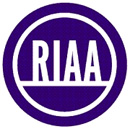RIAA Turning Up the Heat On Universities
 It seems the RIAA is trying a surge of their own by increasing the number of take-down notices to universities, estimated to be up by a factor of 20. According to Wired.com:
It seems the RIAA is trying a surge of their own by increasing the number of take-down notices to universities, estimated to be up by a factor of 20. According to Wired.com:
University of California at Berkeley’s chief information officer Shel Waggener confirmed he’d heard of the spikes and suggested there was a political purpose driving them.
“Public universities are in a unique position since the industry puts pressure on us through state legislatures to try to impose what are widely considered to be draconian content monitoring measures and turn us into tech police forces in support of a specific industry,” Waggener said.
The RIAA is also backing legislation in states such as Illinois and Tennessee that would require schools that get a certain number of notices to begin installing deep packet monitoring equipment on their internet and intranets.
The little alarm went off on my mental control panel next to “reasonability.” I don’t see what’s wrong with take-down notices if copyrighted materials are being illegally distributed – not made available, but distributed. Therefore, evidence of distribution must also be included in a take-down request sent to universities.
As for deep packet inspection, that may very well cross a line. However, one could make the reasonable statement that, whereas the “making available” argument does not hold water, it’s still unwise for a university to afford students the possibility of abuse if there’s a clearly demonstrable history of it.
University networks are controlled-access networks, owned by the universities, who are liable to some degree for their use. Frankly, file sharing with external sites is a red flag. If there is proven illegal file-sharing at a specific university which uses its network, and that university takes no reasonable action to prevent such future abuse, it can be argued that it is an accomplice, or at least negligent.
What’s a university to do? Monitor the use of its networks and look for recognized threats to its integrity – including legal – that would compromise the network or the university, and provide for consequences to those found abusing that network?
Reasonable? I have a tough time arguing against that.

 The future of digital experiences will be built by strategists who grasp the full array of emerging business, social, and technical models. Specialties in user experience, branding, application design, and data science are laying the foundation for richer user experiences and business models breakthrough products and revenue based marketing.
The future of digital experiences will be built by strategists who grasp the full array of emerging business, social, and technical models. Specialties in user experience, branding, application design, and data science are laying the foundation for richer user experiences and business models breakthrough products and revenue based marketing.